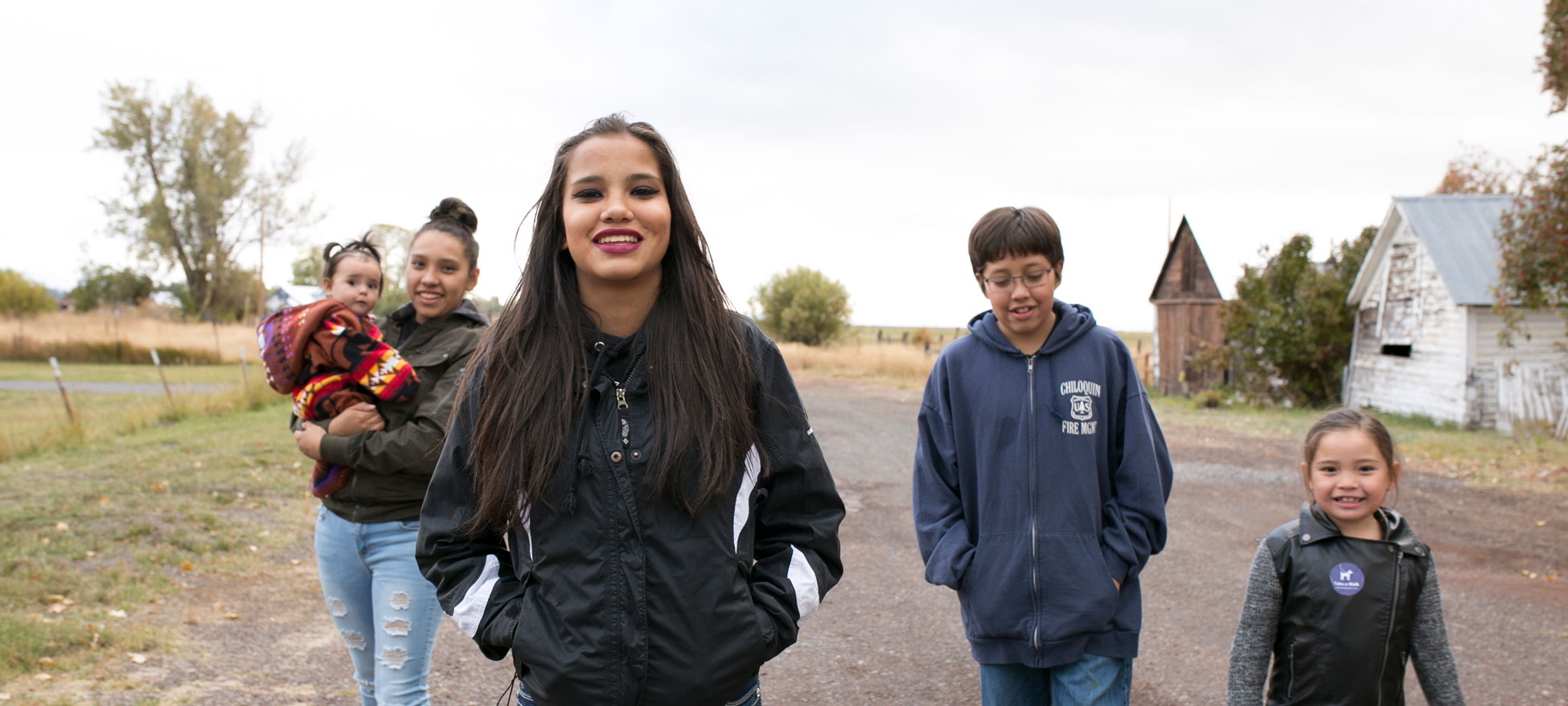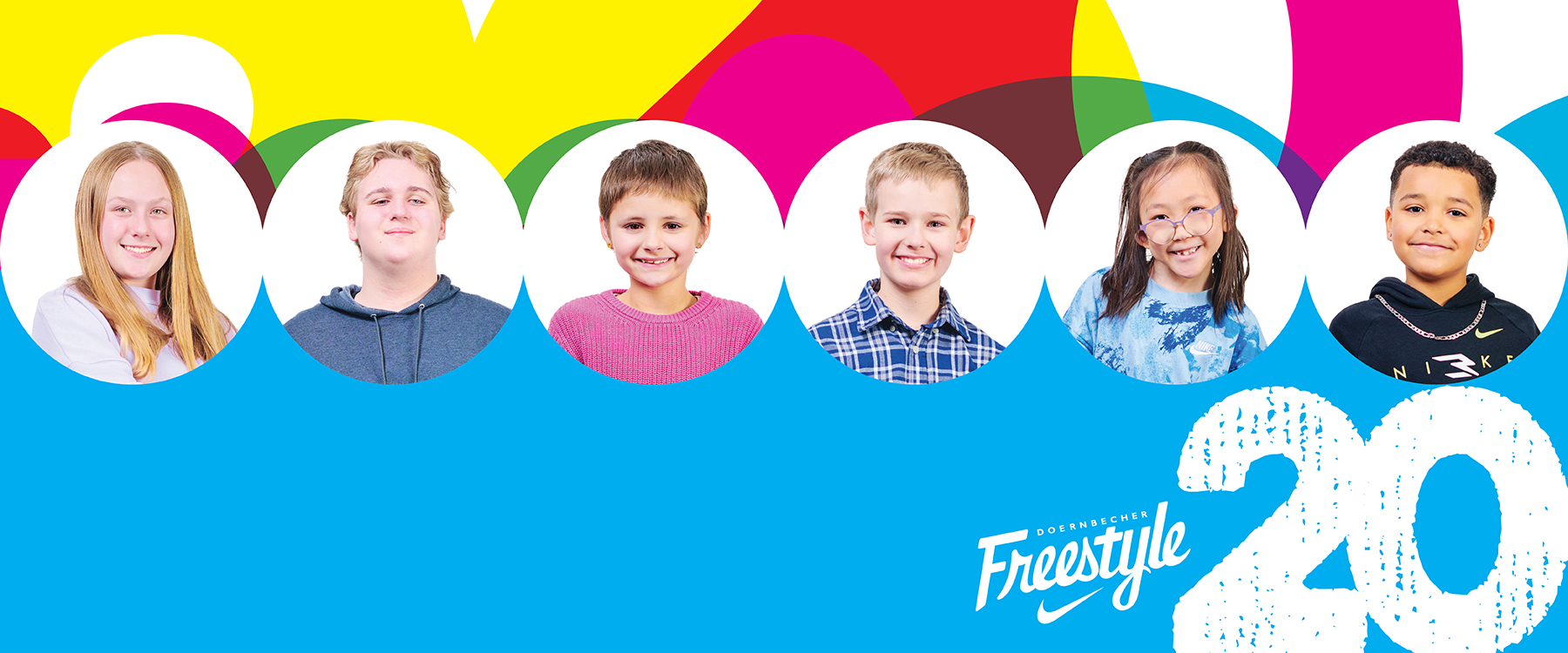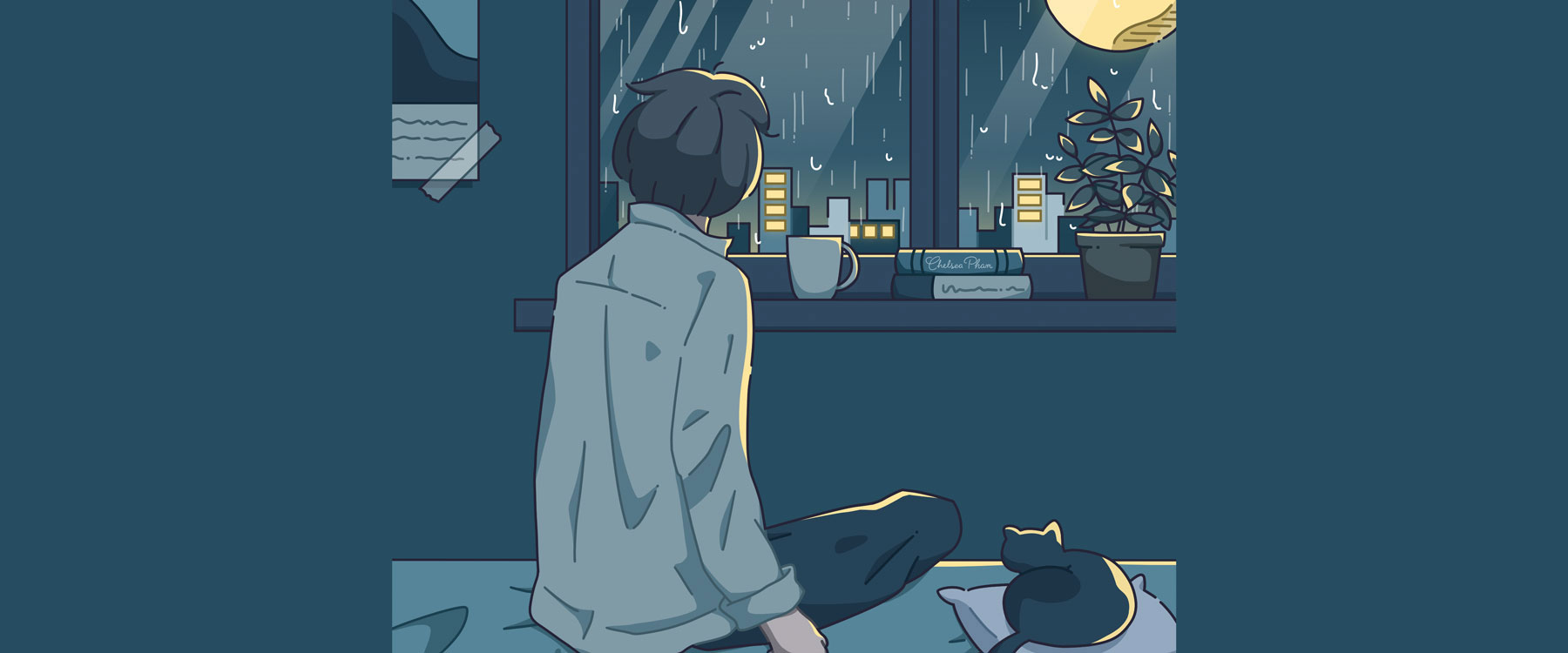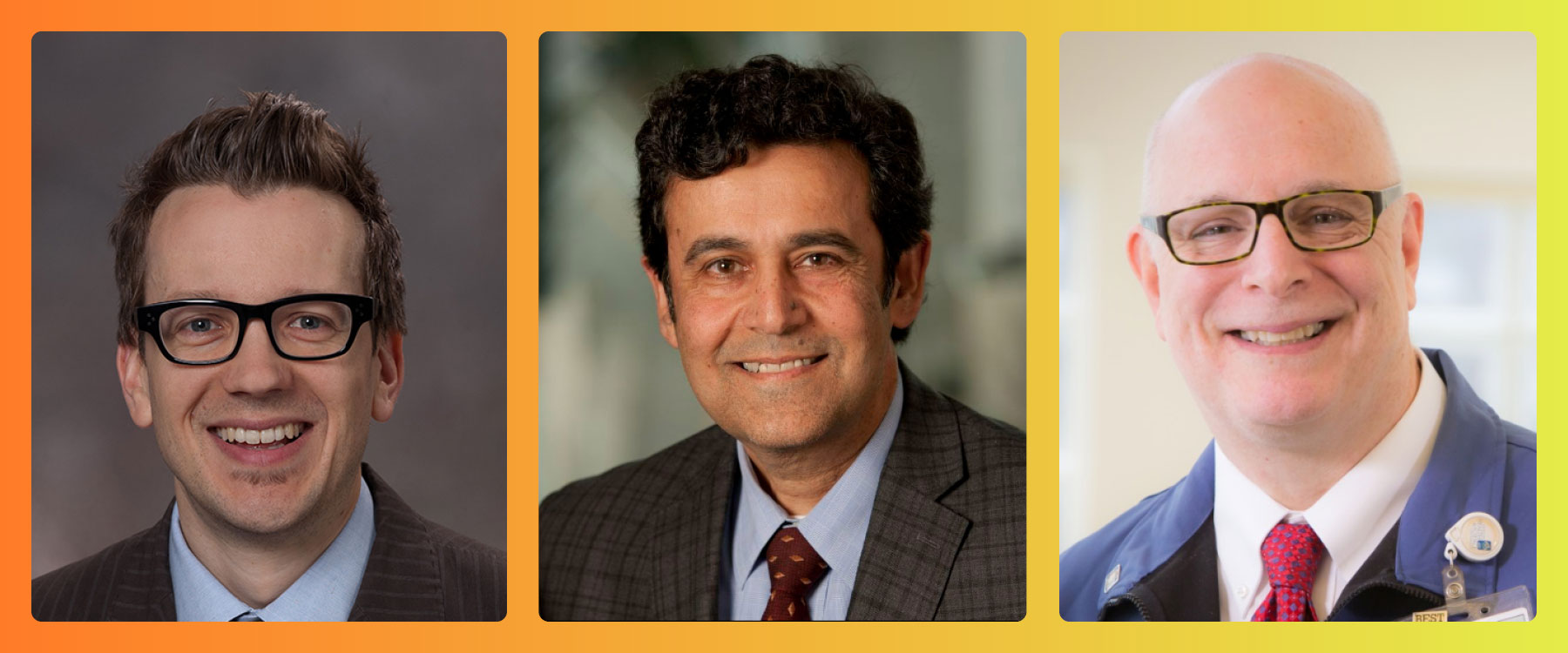Laura Schroeder came into the world as a question mark. How had she made it this far?
Laura’s parents, Nanny and Ron Schroeder of Chiloquin, Ore., had been in suspense for several months. It was painful. “I’ll never forget it,” said Nanny. “We went to Medford for an ultrasound when I was seven months pregnant and the doctor said, ‘We can’t see any kidneys. But your baby is making amniotic fluid and surviving, somehow.’”
Their local doctor advised Ron and Nanny to give birth at OHSU Doernbecher Children’s Hospital. They would be five hours from home, but surrounded by the region’s top kidney specialists and pediatric surgeons. Nanny’s parents made the trip from Chiloquin, too. “My mom was right there at my hip the whole time. I don’t know what I would have done without her,” said Nanny.
Laura was born early in the morning of May 31, 2000 with one poorly formed or hypoplastic kidney as well as several other congenital abnormalities. She had been getting along with one partial kidney but would not survive without immediate intervention. One week after her birth, Laura underwent her first surgery.
Steven Skoog, M.D., then Doernbecher’s chief of pediatric urology, performed the surgery along with now-retired surgeon Marv Harrison, MD. Dr. Skoog remembers baby Laura well. “We knew she had complex congenital anomalies, but we couldn’t figure it out from imaging alone. We had to do exploratory surgery.”
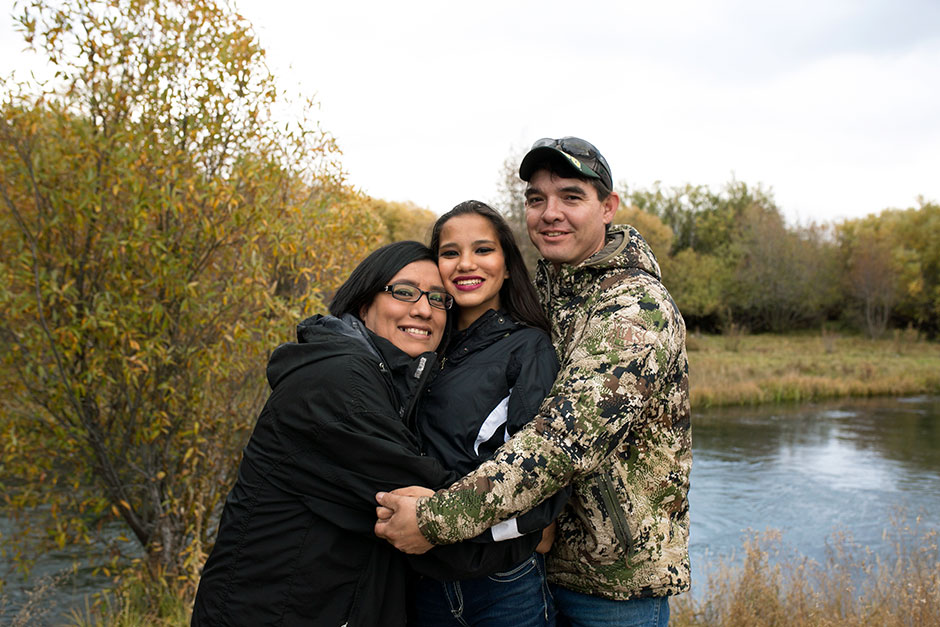
After the surgery, Dr. Skoog sat down with the young parents. “He took us aside and said, ‘Your daughter has very complicated anomalies and we’re not quite sure what to do, but we’re going to confer with some other people and figure it out,’” said Nanny.
“Laura’s already been through more than most people go through in a lifetime. She’s a fighter and she just keeps going.”
Ron, Laura’s dad
“Dr. Skoog was willing to admit he didn’t have a clear answer, and he was going to keep trying until they got it right. We knew he was going to be straight and honest about our daughter. That made me feel good,” said Nanny.
They ended up staying in Portland for a month after Laura was born, to make sure she received the best care possible. Nanny and Ron were 19 and 21, just starting their adult lives. Ron took a temporary leave from his job at Crater Lake National Park. Nanny had been in school, but put it on hold.
Thus began a 17-year journey that’s included nine surgeries, many hospital stays, several medical teams, and countless procedures, appointments and trips from Chiloquin to Doernbecher. What’s remained constant is that, through baffling and sometimes life-threatening medical challenges, Doernbecher has been there with expert and compassionate care. And the family has stayed strong.
Ron put it this way: “Laura’s already been through more than most people go through in a lifetime. She’s a fighter and she just keeps going.”
An underappreciated organ
Laura’s single, partially formed kidney was her biggest health challenge. As Doernbecher kidney specialist David Rozansky, MD, PhD, pointed out, “The kidney is an underappreciated organ. It’s not just for filtering waste products and balancing water and salts. It’s also crucial for bone health, general growth and preventing anemia.”
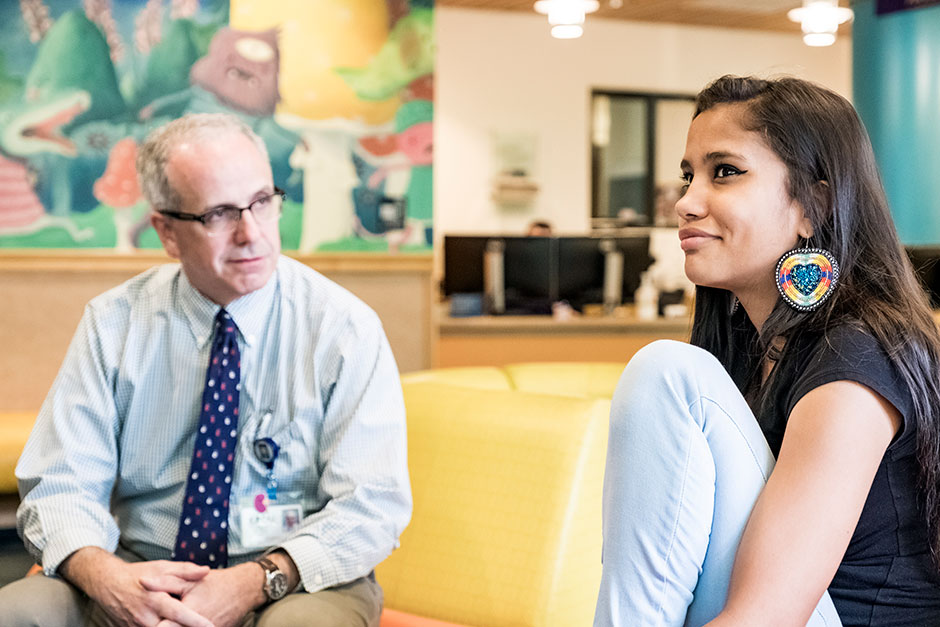
Dr. Rozansky, along with kidney transplant coordinator Debra Wachsmuth, RN, started coordinating Laura’s care when she was about 1. Starting in her first year, Laura underwent two surgeries in order to maintain partial kidney function and to repair other internal anatomical issues.
When she was 9 years old, Laura also started seeing Dr. Amira Al-Uzri, director of Doernbecher’s kidney transplant program.
It was around that time that the team decided she would need a kidney transplant, in order to keep growing and thriving and to avoid the need for dialysis.
Laura was lucky. Her father, Ron, was an ideal kidney donor. In 2009, Laura received one of her dad’s kidneys. Dr. John Barry performed the surgery. The difference was obvious almost right away.
“It was an amazing feeling,” said Ron. “The change she went through after the transplant was phenomenal. She grew more than four inches and gained 20 pounds in a year. The best part was knowing that she was going to be around a lot longer than anyone thought.”
Laura is grateful. “I have always had a strong bond with my dad. I know he is there for me when I need him.”
Between 10 and 15 children receive kidney transplants at Doernbecher every year. They travel from as far as Idaho and southern Oregon, as Doernbecher is the only hospital in the region with the expertise to perform kidney transplant surgery.
“This work is very rewarding,” said Wachsmuth. “I get to know these kids over several years. I’ve seen Laura go from being a very shy little girl to being someone who can communicate and who accepts who she is. She may get down for a little while, but she always gets right back up.”
The kidney kids
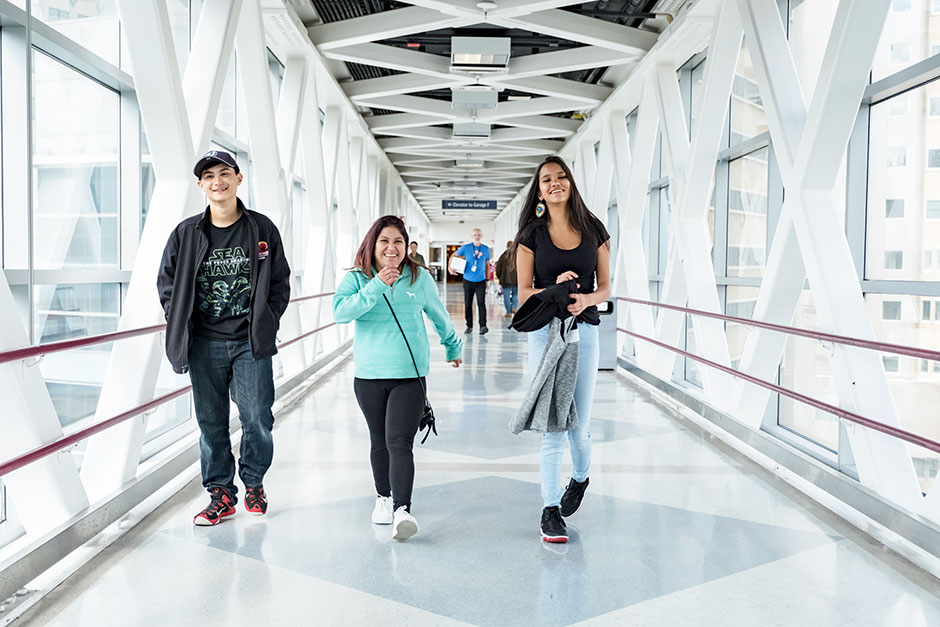
For kids who are contending with serious medical issues, it can be hard to make friends. They’re in and out of school, and many activities are simply out of reach. The fortunate ones, like Laura, have opportunities to meet other kids going through the same thing.
Laura met Prissy Hampton and Anthony Roletto three years ago at Kidney Camp, an annual outdoor camp held in Turner, Ore., put on by the nonprofit Northwest Kidney Kids. The organization was founded by Randall Jenkins, MD, holder of the new Y.B. Talwalkar Professorship in Pediatric Nephrology. The late Doernbecher social worker Suzanne Billings, MSW, was also deeply involved in the organization, as is Dr. Rozansky, who now serves as interim president. Laura has been going to Kidney Camp for nine years.
Prissy and Anthony both had kidney transplants at Doernbecher. Laura feels comfortable with them because, “They understand my situation. I don’t have to explain every single detail. And I can talk to them about anything that’s happening, and I know I won’t get judged. I wish I could see them more.”
Prissy, 19, lives in Portland and wants to become a special education teacher. Anthony, 16, attends Glencoe High School. In 2011, he was selected to design a pair of custom Nike shoes for Doernbecher Freestyle. The tight-knit group stays in touch with social media and phone calls.
Complications
Each of Laura’s nine surgeries has improved her quality of life. But they come with a cost. Surgeries increase the risk of adhesions, fibrous tissue that can cause organs in the abdominal cavity to stick together.
In the winter of 2015, Laura was hospitalized at Doernbecher for 45 days with a life-threatening bowel obstruction, caused by abdominal adhesions. Ron and Nanny stayed at Ronald McDonald West House Waterfront. They left younger siblings Hannah, Orville and Scarlett with grandparents so they could stay in school.
As the days went by, and with Christmas approaching, Nanny, Ron and Laura were missing home and the younger kids. “We decided, it’s time to go get those kids,” said Ron. It was the right decision. “When her sisters and brother came into her hospital room, she really perked up,” said Ron.
The Hospital School program at Doernbecher has been crucial to helping Laura and her siblings stay on track, academically. During Laura’s last hospital stay, Hannah, Orville and Scarlett went to school at the hospital every day. Their teachers from Chiloquin coordinated with hospital teachers to keep them up to date on lessons and homework.
This is our normal
Nanny says being part of a tight-knit community and family has helped her through the hard times. She remembers a few years back when she was upset because Laura was having problems. Nanny noticed that her father was managing to stay calm. “I asked him, ‘Why aren’t you upset? Don’t you care?’” said Nanny. “He said, ‘Of course I care, but you have to realize, this is your life. Your normal is always going to be different than everyone else’s. You still have to keep living and being happy.’”
Laura has not let her medical challenges stop her from doing what she loves. She’s been playing softball since she was 5 (Ron is a coach). Along with siblings Hannah and Orville, she holds a seat on the Klamath Tribes Youth Council.
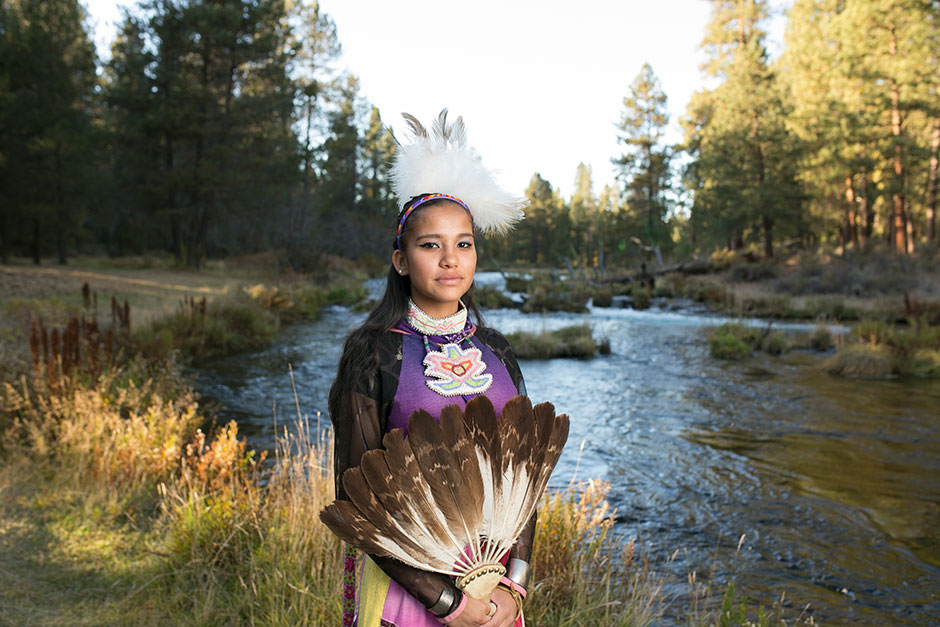
And just this last summer she was made the 2017 Klamath Tribes Restoration Powwow Queen, which requires her to make public appearances and participate in tribal affairs.
There’s no doubt that Doernbecher has saved Laura’s life, more than once. But her caregivers are quick to point out that Laura’s determination and strong family support have been equally important to her survival.
“I am continually amazed at Laura’s positive attitude,” said Dr. Al-Uzri. “They are a very tight family. That is one of the big factors that keeps her going.”
Dr. Rozansky echoes the sentiment. “Doernbecher has been important, but I would give equal credit to Laura’s family,” he said. “They have been supportive and very determined to learn about her condition and figure things out. They do it with humility and no fanfare.”
Growing up Doernbecher
At 17, Laura is now on the cusp of adulthood. This is a challenging time for most kids, but even more so for kids with chronic medical conditions. With that in mind, Dr. Rozansky has been teaching Laura about her medications since she was 11, with the hope that the better she understands how they work, the more likely it is she will take responsibility for her health when she’s no longer under her parents’ watchful eye.
Laura has always enjoyed this part of her health care. “I started taking notes at my appointments, and Dr. Rozansky would quiz me,” she said.
“I am continually amazed at Laura’s positive attitude. They are a very tight family. That is one of the big factors that keeps her going.”
Dr. Amira Al-Uzri, director of Doernbecher’s kidney transplant program
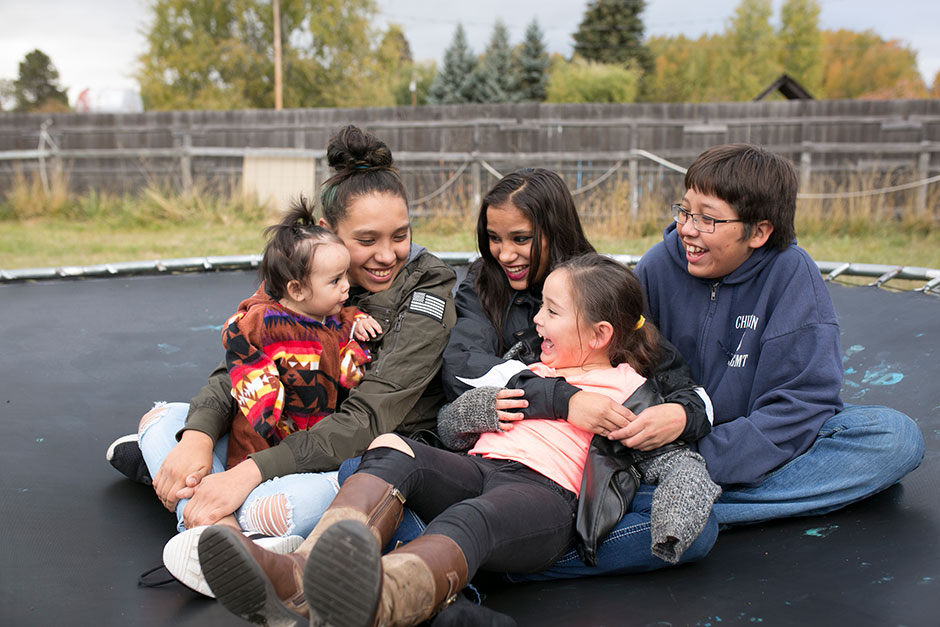
That process also got Laura interested in pursuing a career in medicine. Despite all of the time she’s spent at Doernbecher, she’s poised to graduate on time from high school and aspires to attend Portland State University next year and ultimately dreams of attending medical school at OHSU.
Laura explained, “The older I get, the more I understand my situation and realize I can help other people going through the same thing.” Despite all of the difficult hours, days and months she has spent at Doernbecher, she dreams of working there as a doctor. “I want to be a doctor at Doernbecher because it’s an excellent hospital. And I’ve grown up here. If I were a doctor at Doernbecher, I could show kids that they can do whatever they put their minds to.”
